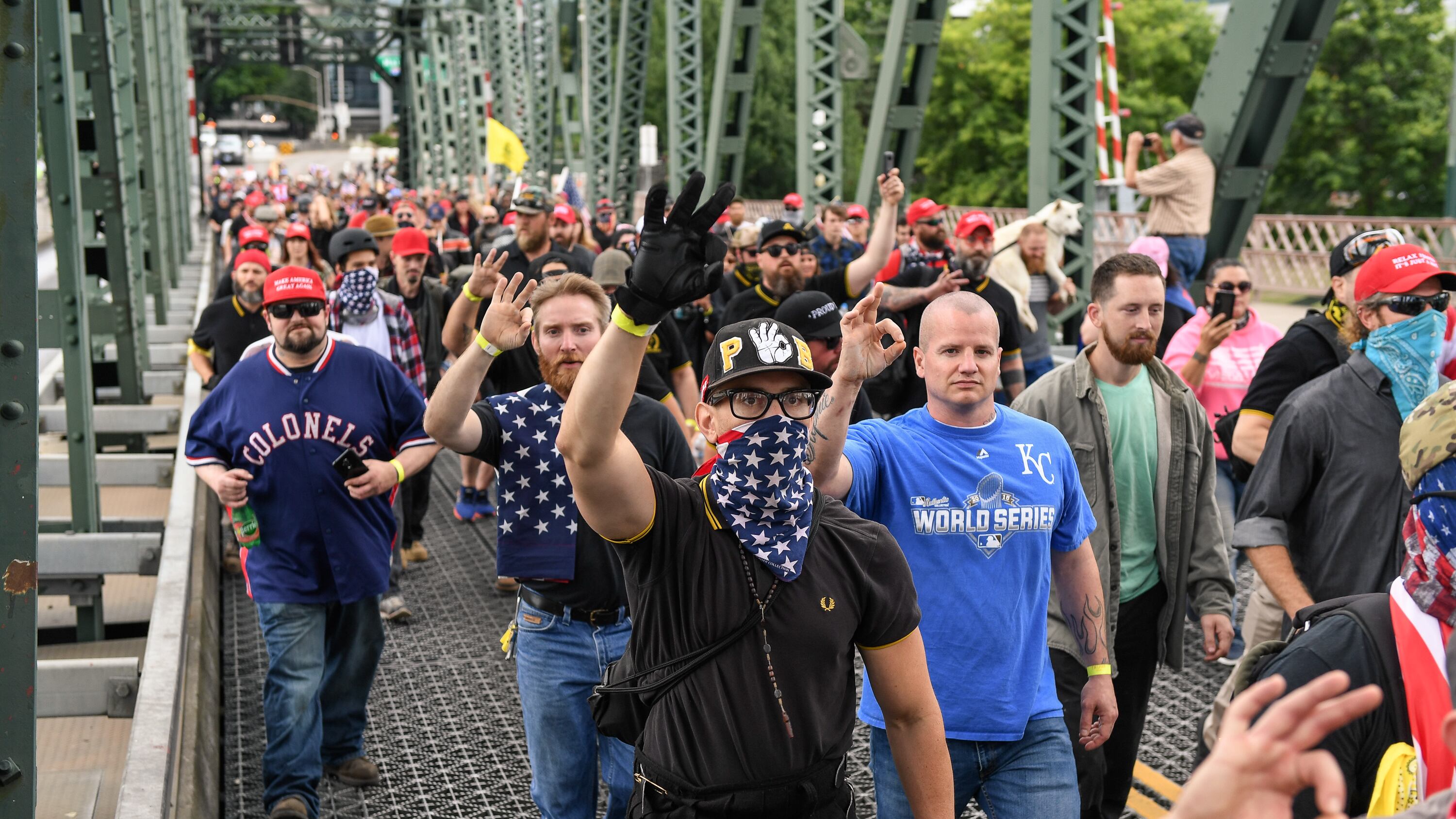Garrett Epps, a former reporter for the Washington Post and later a law professor at the University of Oregon, found himself in an odd place on Aug. 17: in lock-down at the Oregon Museum of Science and Industry with his family as a group of right-wing marchers unexpectedly walked past on their way back downtown.
Epps, now a law professor at the University of Baltimore, had earlier in the summer witnessed a similar event while visiting Eugene: the "God, Guns and Liberty" gathering.
Both experiences caused him to reflect this week on the arc between the legendary Oregon Supreme Court Justice Hans Linde and the face-offs occurring regularly in Oregon streets. Linde, whose family fled Germany to escape the Nazis, became perhaps the best known proponent of free speech in the nation's state courts.
"The most important legacy of the Linde years were his opinions interpreting Oregon's free-speech guarantee much more broadly than the federal First Amendment," Epps writes in The Atlantic. "That protection has helped preserve Oregon's wide-open democratic culture, where ideas from the Neanderthal to the utopian can contend, and where human experience comes in many shades."
But Epps thinks the Proud Boys and their allies have taken the freedoms Linde fought for too far.
"The right has targeted Linde's haven for destruction," Epps writes. "The real target, though, is not Portland or antifa but all of us, and our sense of security that we are free citizens of a democratic nation, free to take our children downtown to play or to assemble peacefully to advocate values that the Republican Party does not approve. That party under Trump is now taking sides in the uneven war in Portland's streets—and it is taking the dangerously wrong side."

